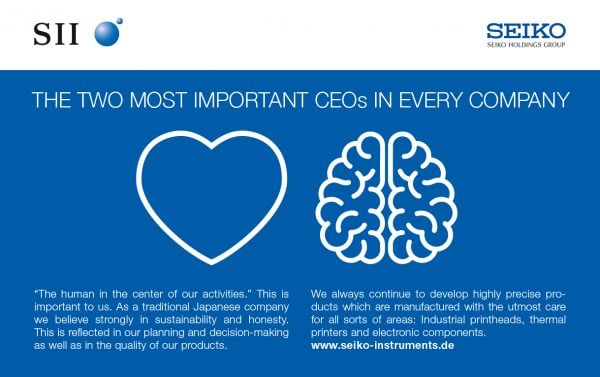Control Print is one of those companies that touches the lives of consumers every single day, but whose services are usually completely overlooked. Every time you look at a sell-by date on a perishable food product, a recommended retail price label or the technological specifications on a home appliance like a microwave, you’re seeing the result of work by a company in the coding and marking industry.

If the label you’re reading is on a product in the Indian market, there’s a good chance it was designed, manufactured and distributed by Control Print, which has been in the business since 1991 and is the only company in the country offering this service with locally designed and locally made equipment.
“This is the basic difference between us and our competitors,” says Basant Kabra, Control Print’s Founder, Chair and Managing Director. “We are an Indian company with production in India for the Indian market.” The benefits of being grounded so firmly in the local market go beyond just understanding customer requirements.
“We know what the Indian consumer and our customers need and how to make the product suitable for them,” he shares. “All of our competitors are simply redoing things the way they are done abroad and are importing everything to India.”
Rescuing consumers
Control Print is able to seamlessly address any issues that arise in this complex industry because it knows its proprietary local technology inside out. The company makes all the spare parts and all the consumables that go with its printing machines, such as inks, solvents and filters.
Being local also means it is able to keep costs down and stay competitive. Before Basant started the company three decades ago, the concept of standardised labelling and coding was relatively unheard of in many industries in India.
He had encountered coding and marking while travelling abroad and immediately saw how labelling systems could carry an enormous range of benefits across numerous industries.
“I realised what they were doing abroad would really benefit India, for example, by giving basic information to consumers, like the expiry date and the maximum retail price,” he says.
This is the basic difference between us and our competitors. We are an Indian company with production in India for the Indian market.
“This was needed even more in India, because consumers were being overcharged and the maximum price varied from state to state because of taxes. I saw this as an opportunity because the government wanted consumers to not be cheated, and we were able to help with that.”
Today, Control Print serves companies operating across broad swathes of the country’s economy, from construction, health care and electronics to food and beverages, automotive and agrochemicals.
Because it built everything from the ground up, the company is able to adapt its machines and services to the unique needs of each industry. In construction, it offers dustproof and waterproof machines that can operate with low fault rates in messy and harsh environments.
It has even produced special inks so that vital information is not lost when products are stored in direct sunlight, as is often the case in construction. In the fast-moving consumer goods market, Control Print offers highly versatile printing technology that enables manufacturers to print on curved surfaces and on materials that ordinary inks will usually not adhere to.
This is vital in a market where companies must ensure they stand out against tough competition with their packaging. Its machines are also user friendly, featuring large touch screens, and can be operated in all the major Indian languages, meaning local staff who do not speak English are not excluded from using them.
But these tailored services can only add value if the technology behind them is highly reliable, which is why Control Print invests a lot of energy into ensuring that the downtime of its machines is minimised.
“The customer is affected if production is stopped because of a fault,” Basant explains. “So we have to always focus on our after-sales service, on maintaining maximum uptime. India is a very big country and keeping up this kind of service network requires a lot of hard work and a very flexible approach.”
Truly local
The positive side of taking on this much responsibility for the performance of its machines is that Control Print’s after-sales services, including maintenance, is highly prized among customers.

This, added to other after-sales revenue streams such as consumables for the machines, is a major part of the company’s value chain. “This is what keeps our after-sales revenue coming in,” Basant says.
“Consumables are our bread and butter. You sell the machine once, but it’s the ink, ink rolls and filters that you can sell over the life of the machine, and our revenues from these are much higher. This gives us a continuous stream.
“We spend a lot of time and effort on training our employees to enrich their knowledge and skills to continuously improve customer service standards. We always value our employees and ensure their betterment as they are the real assets of the company.”
It wasn’t easy to get the company into such a strong position with its current business model. Basant’s early attempt to make the company into a manufacturer fell flat in the 1990s because of low volumes. The company then switched for a while to marketing and distributing for well-known foreign manufacturers.
Then, over the years, as the market grew, so did Control Print’s knowledge of coding and marking solutions in the Indian market. Eventually, in 2008, Basant was able to fulfil his vision of making the company truly local.
“In 1990, it was a very small industry. People just didn’t know of the requirements or the advantages – they thought it was just putting some barcodes on things,” he says. “But now, products have really matured; it’s maturing every year, and there’s much more to come.”
Proudly supported by:



